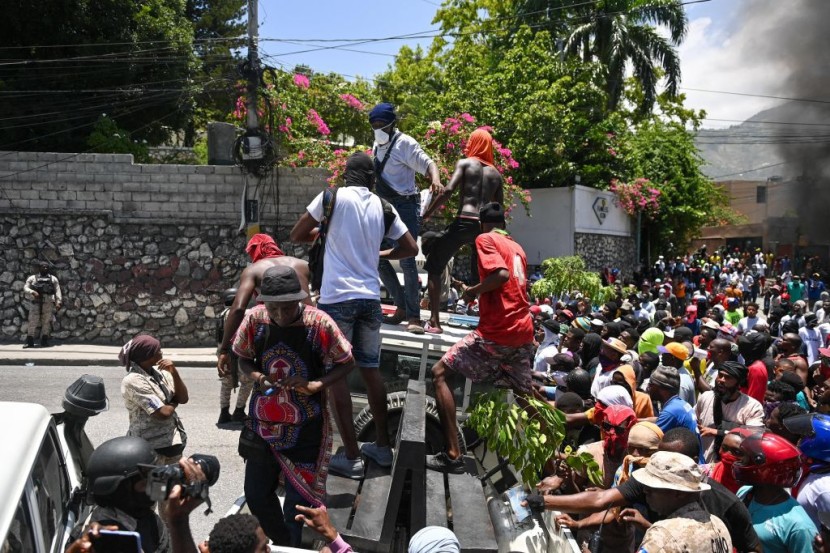Supporters of former rebel leader Guy Philippe have brought several Haitian cities to a standstill, demanding the resignation of Prime Minister Ariel Henry.
The protests, which commenced on Monday, have disrupted normal life, forcing the closure of schools, government agencies, and private businesses in cities such as Jeremie, Miragoane, Ouanaminthe, and Les Cayes, as per The Independent.

Reports from local media indicate that hundreds of demonstrators took to the streets, blocking roads and setting tires ablaze as they voiced their demand for Prime Minister Ariel Henry to step down. The supporters of Guy Philippe argue that Henry's resignation is crucial for the initiation of the promised "revolution" by Philippe, a convicted smuggler recently deported from the United States.
While Philippe has successfully mobilized a substantial number of followers across the country who view him as a transformative figure, concerns have been raised by residents who fear that the ongoing protests could compound the existing challenges faced by Haiti. Disruptions to schools and businesses, coupled with the potential exacerbation of the hunger crisis, are top concerns for those wary of the unrest.
Guy Philippe, who returned to Haiti last month after serving years in a US prison, clarified his intentions in a message to his supporters. Contrary to allegations of plotting a coup, Philippe asserted that his objective is to bring about positive change in Haiti, a nation grappling with deepening poverty and escalating gang violence.
In his address, Philippe emphasized, "My revolution is for the people, for the people only." He further expressed his support for Haiti's National Police, urging them to fulfill their duty in protecting the citizens, according to Haitian Times.
Guy Philippe's Return From US Prison to Haiti's Unrest
Philippe, who served a nine-year sentence in the US for money laundering, gained prominence for leading a rebellion against former President Jean-Bertrand Aristide in 2004 and orchestrating attacks on police stations.
Philippe's return to Haiti coincides with a nation besieged by numerous gangs responsible for the deaths of nearly 4,000 people and the kidnapping of another 3,000 in the past year, overwhelming the national police, according to the United Nations.
In his commitment to his supporters, Philippe promised, "the suffering is going to be over pretty soon." However, the unfolding events have raised concerns among both citizens and international observers about the potential consequences of the protests and their impact on the already fragile state of affairs in Haiti.
As the demonstrations persist, the government and various stakeholders are closely monitoring the situation, with apprehension regarding the potential escalation of tensions and the overall stability of the nation hanging in the balance. The supporters of Guy Philippe remain steadfast in their demand for Prime Minister Ariel Henry's resignation, setting the stage for a complex and uncertain period in Haiti's political landscape, Newsday reported.








